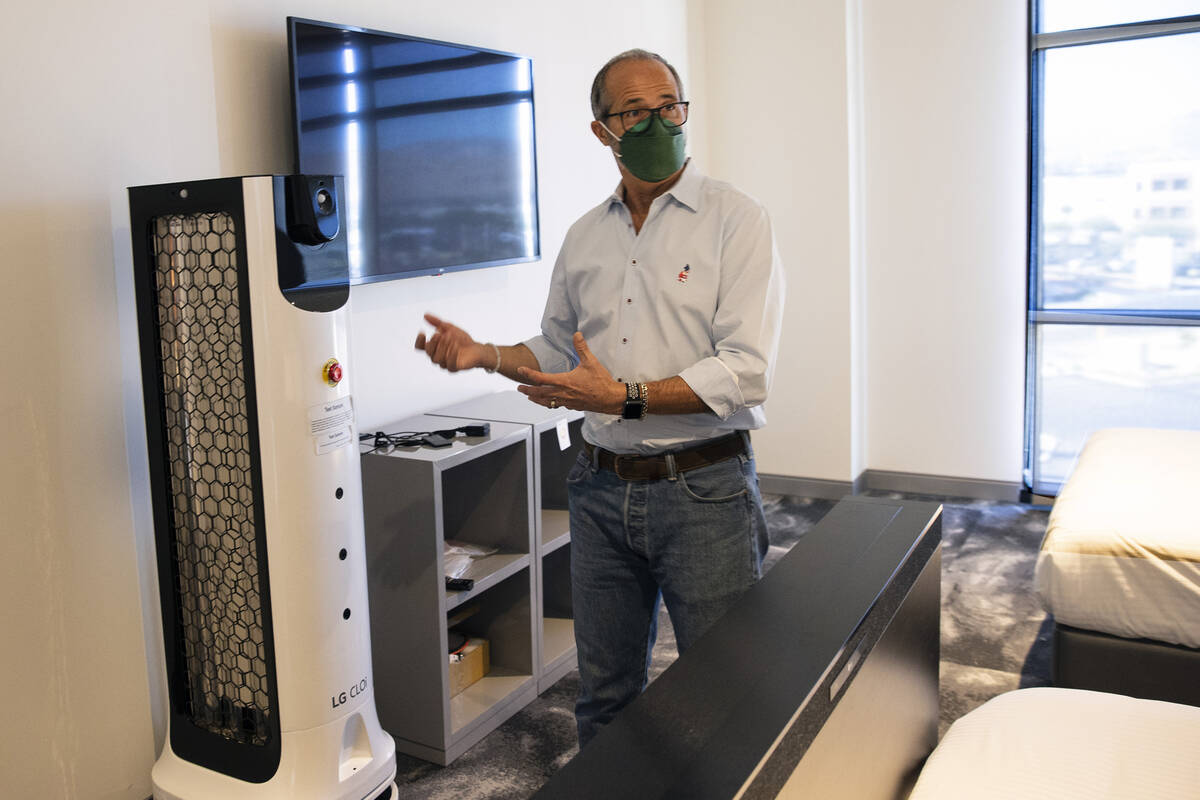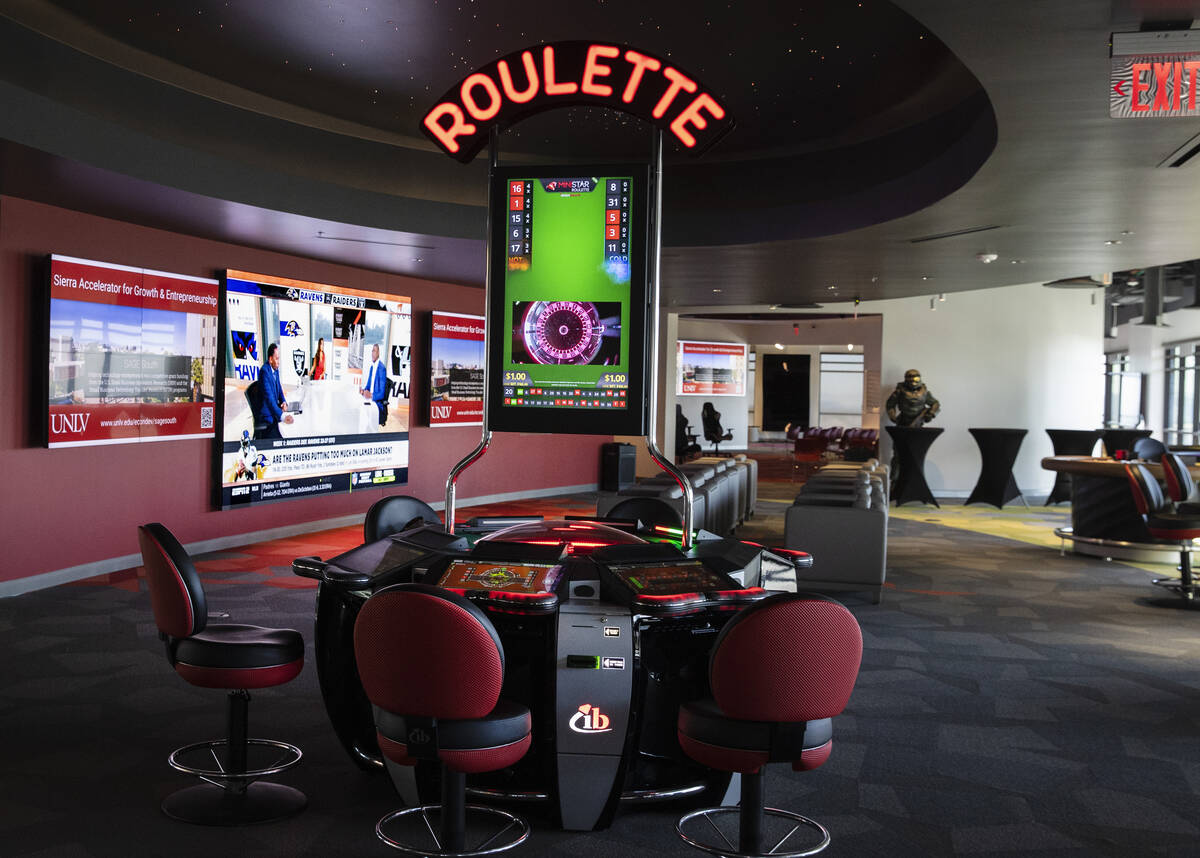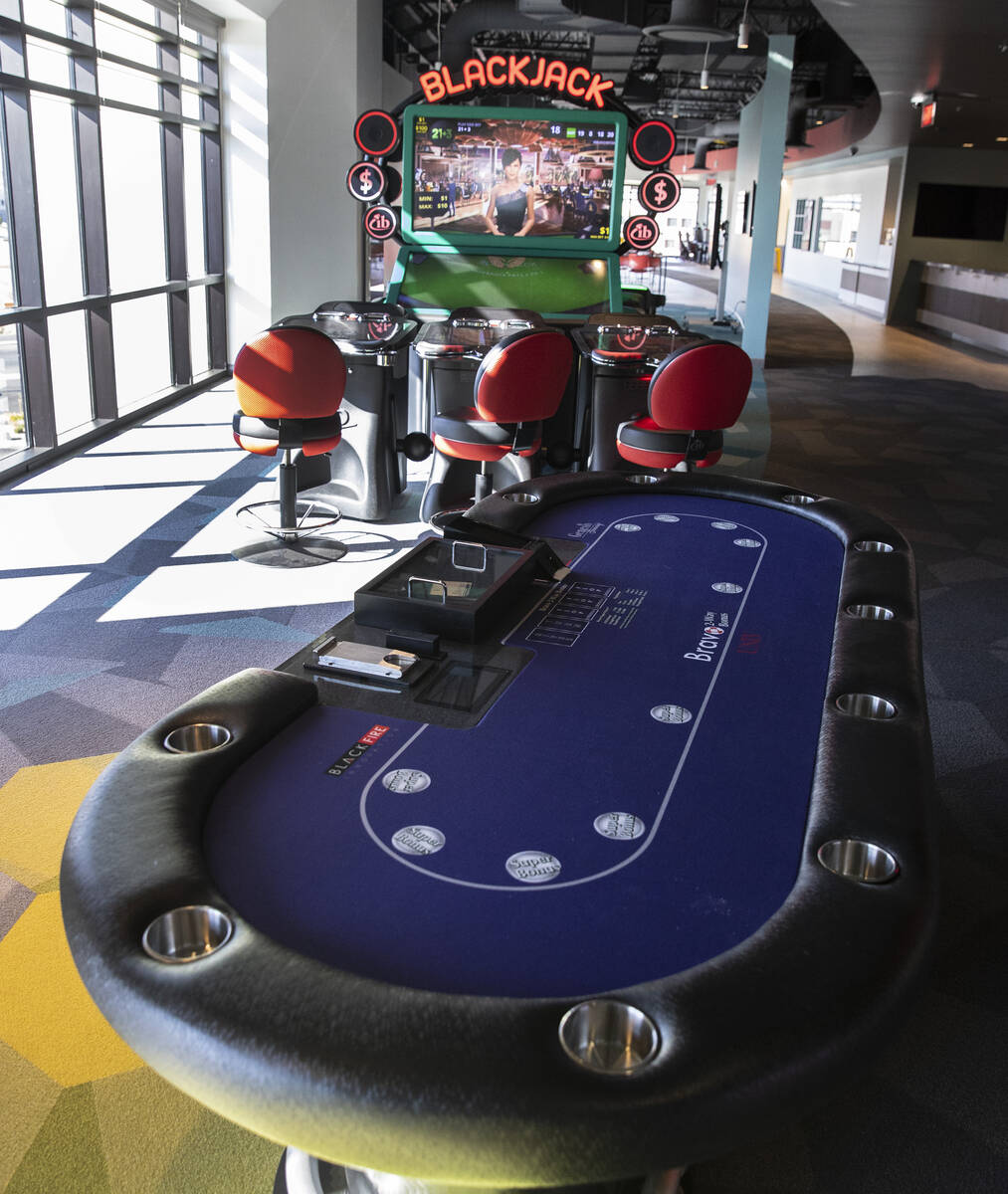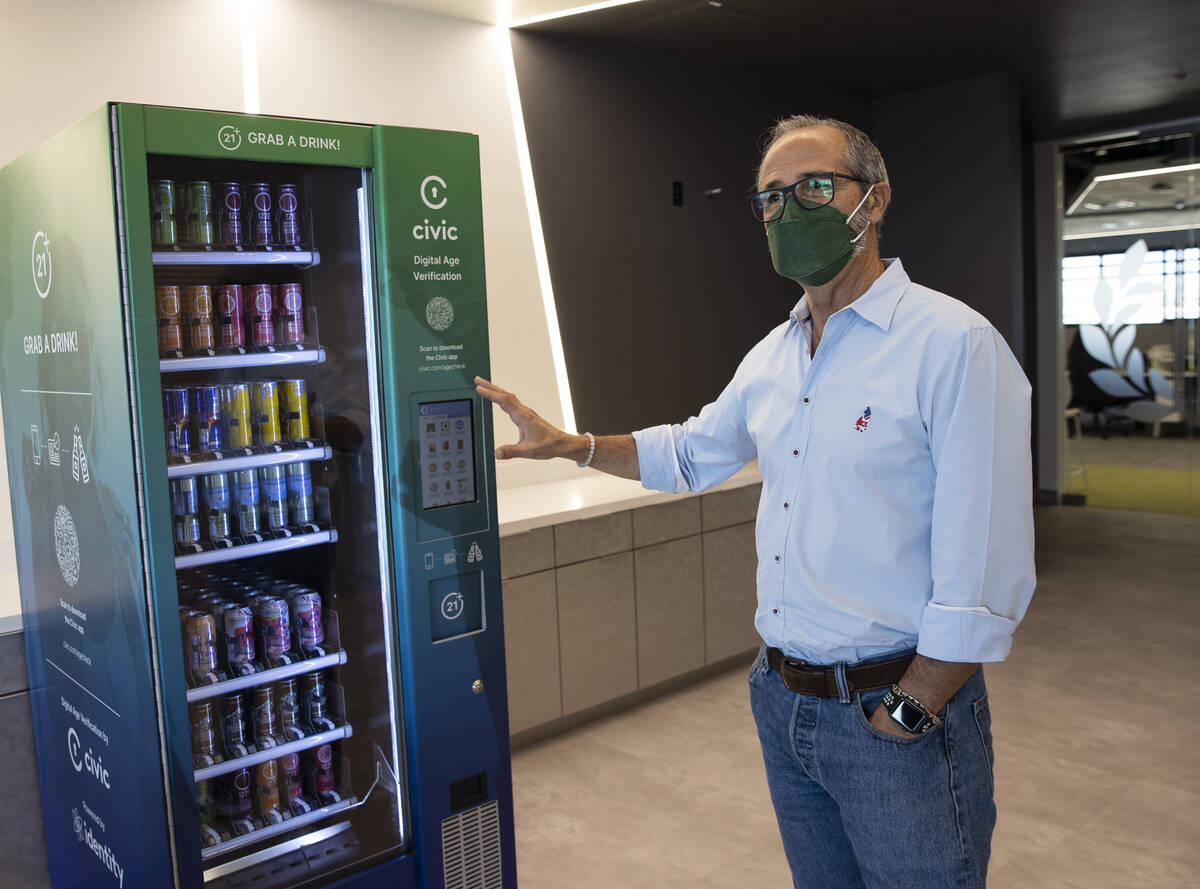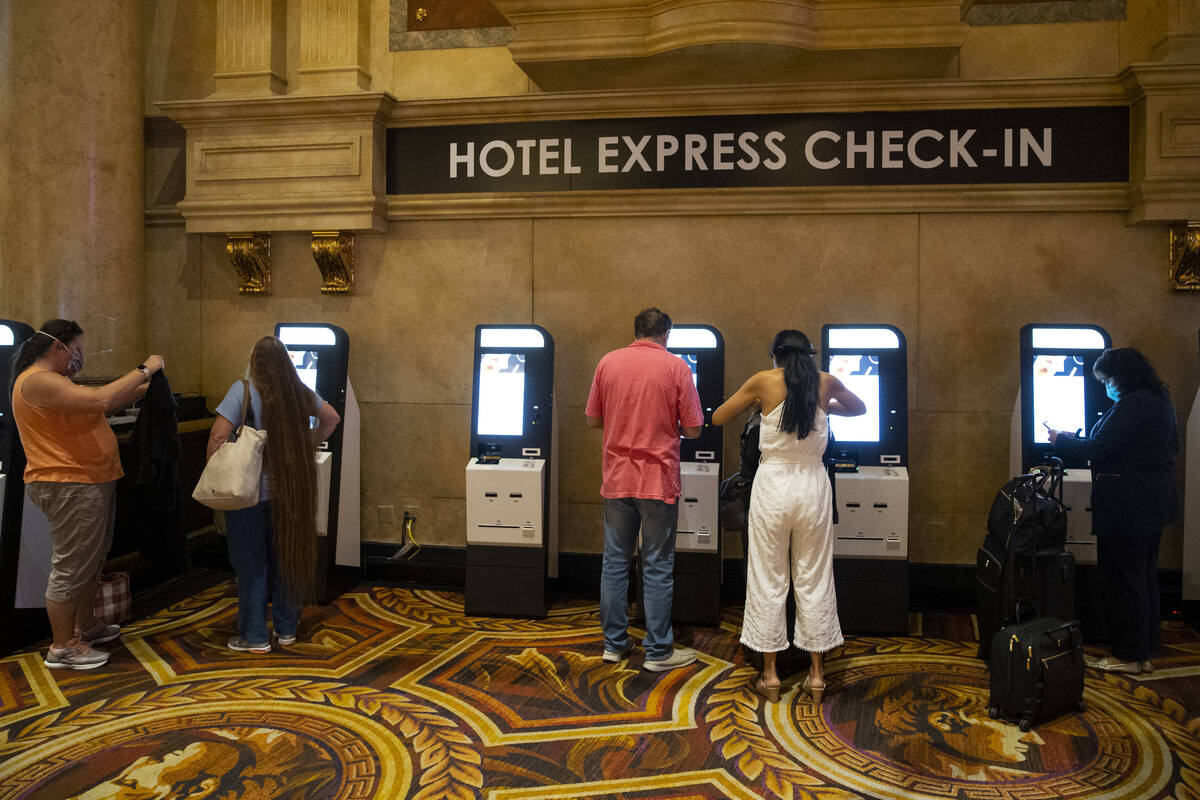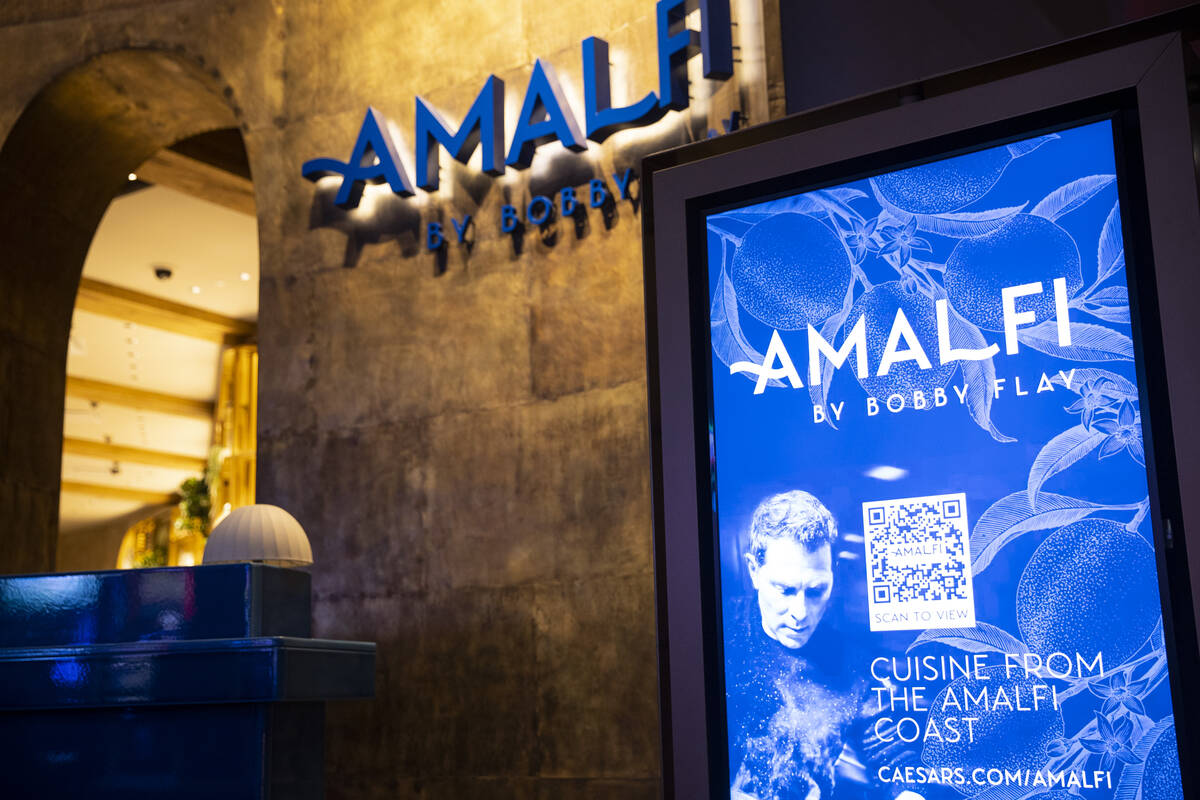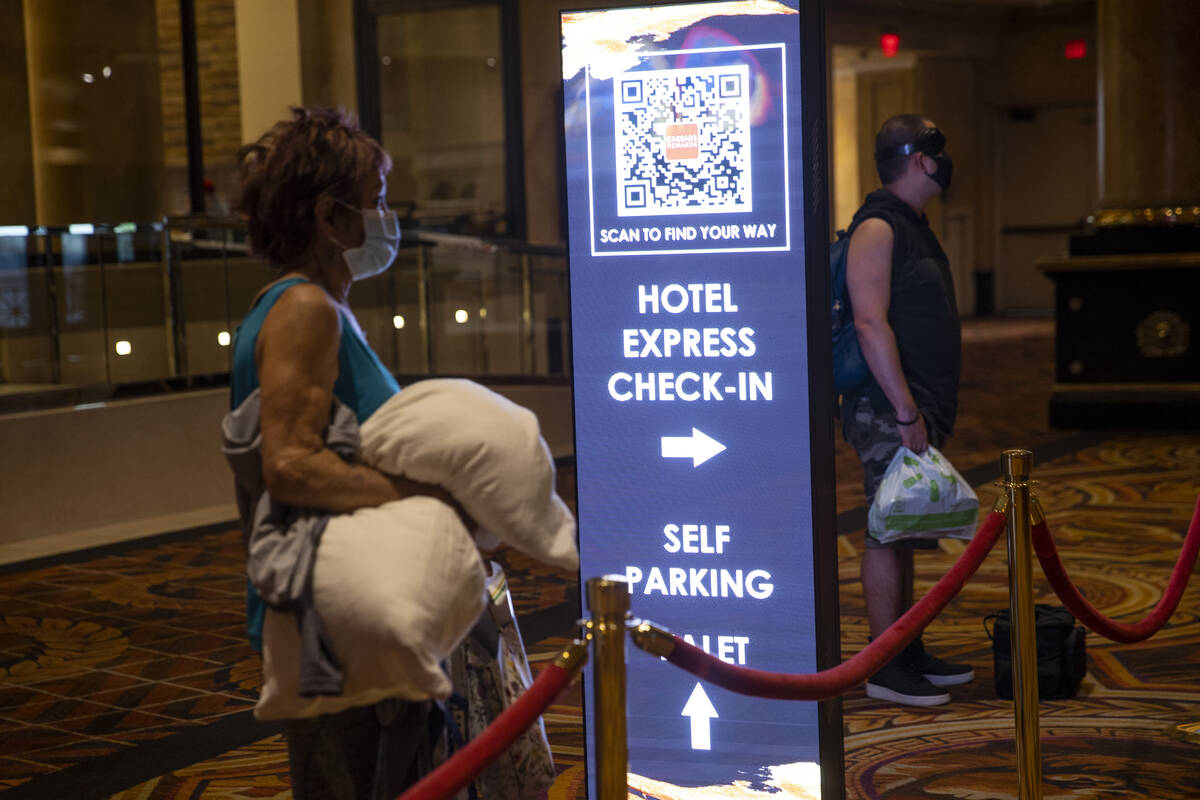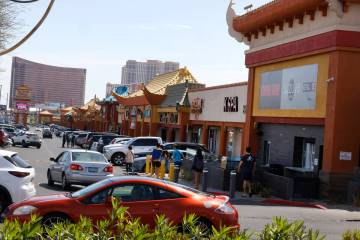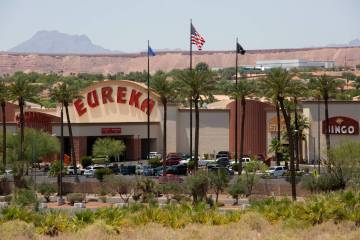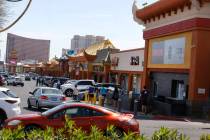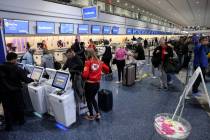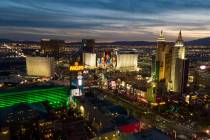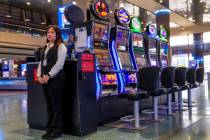A smartphone is now key for Las Vegas resort visits. Robots may be next.
From the self-service kiosks lining the entrances to QR codes dotting virtually every sign, it’s hard not to notice how COVID-19 has changed resorts in Las Vegas.
Over the last year, the hospitality industry has been forced to adapt to changing demands of customers who are looking to avoid crowded lines and limit human interactions, all while still delivering that quintessential Las Vegas experience.
For hotels, resorts and the industry at large, the new era of higher-tech and lower-touch ushered in by the pandemic is likely here to stay.
“Once people get used to digital interactions and digital service encounters, whether at a supermarket or hotel, that will become the norm,” said UNLV hospitality professor Mehmet Erdem.
Self-serve kiosks aren’t new, but they have become more popular across the resort industry in Las Vegas, allowing guests to skip the lines and throngs of people. On the casino side, demand from companies for cashless digital wallets and electronic table games has taken off since the pandemic hit last year.
Much of what used to be the traditional guest experience at hotels has been boiled down to a 6-inch smartphone screen. A person’s smartphone can be a check-in device and even the actual room key. It can bring up nearly every restaurant menu in an instant via QR code. And at a growing number of resorts, a virtual concierge is just a text message away.
Many of these technologies were starting to gain popularity with consumers prior to the pandemic, but hospitality companies have historically been slower at keeping up with those changes, Erdem said. Executives tend to shy away from the high cost of new tech products or changes over concerns about how long it could take to recoup the investment, he said.
With the rapid rise in demand from consumers for contactless or low-touch technologies amid the global pandemic, that financial factor has been all but removed from the equation.
“What the pandemic has done is it has shown the value of a technology product goes beyond the cost saving or revenue generation. It’s more of a strategic tool for survival and sustaining the business,” Erdem said.
At MGM Resorts International, plans were in place before the pandemic to roll out a mobile check-in app for guests sometime in late 2020 or early 2021. The pandemic “has definitely accelerated a number of different technological and digital strategies” for the company, said Craig Martin, vice president of product management for MGM.
The implementation was done first as a health and safety response, Martin said, but it also provided “a convenience factor that really has been highly adopted by our guests over the last year.”
Those changes have definitely changed the guest experience, Martin added.
“It allows the guest to streamline their interaction with MGM and get the ease of use at their fingertips on their phone, but really allow them to focus more on the Las Vegas experience,” he said.
Caesars debuted self-serve kiosks back in 2015, and its virtual concierge service, Ivy, in 2018. But since COVID, guests have used those platforms at a much higher rate as they have become more conscientious about avoiding crowds, according to Terrence O’Donnell Jr., vice president and assistant general manager of Caesars Palace and The Cromwell.
“Guests are more technologically savvy and it’s become such a part of everyday life, so guest adoption is much greater than ever before,” O’Donnell said. “Our guests have become so much more ready, willing and able to use those to experience the amenities that they want.”
The adoption of these technologies doesn’t have to mean that consumers completely lose out on face-to-face experiences, said Erdem from UNLV.
Contactless payment and ordering systems at restaurants, for example, are also helpful for increasing efficiency for the waitstaff, eliminating the likes of the back-and-forth walking of bringing the check and running the customer’s card.
That time saved, Erdem said, allows the employee to spend more time engaging with the guests and personalizing their experience.
“We shouldn’t think of these technologies as replacing the person,” Erdem said.
What’s next?
Having the latest and greatest health and safety tech will likely become a advertising tool for resorts, said Stowe Shoemaker, dean of the UNLV’s William F. Harrah College of Hospitality.
He compared it to the changes in hotel bedding that came about after Westin introduced and started to advertise its Heavenly Beds in the late 1990s, keying in on the cleanliness and comfort level.
“Now, pretty much every hotel from a Motel 6 all the way to a Four Seasons, they all have really comfortable mattresses,” Shoemaker said.
Some of those advancements are currently being tested at UNLV’s Black Fire Innovation Hub, a “living lab” complete with mock hotel rooms, casino floors and kitchens.
That includes LG’s CLOi, an autonomous germ-fighting robot that disinfect a hotel room using UV-C light to sterilize the air, and a super-thin projection-screen TV where the screen can be displayed between sheets of plexiglass
The adoption of these new advancements will continue at a rapid pace, especially those focused on the health and safety aspect as consumers’ awareness of pathogens in the air and their expectations for heightened cleanliness aren’t likely to go away, according to Black Fire Innovation Executive Director Robert Rippee.
“I think that’s a behavior that’s going to stick with us long after the pandemic subsides,” he said. “Our behaviors are changing whether we accept them or not.”
Contact Colton Lochhead at clochhead@reviewjournal.com. Follow @ColtonLochhead on Twitter.



